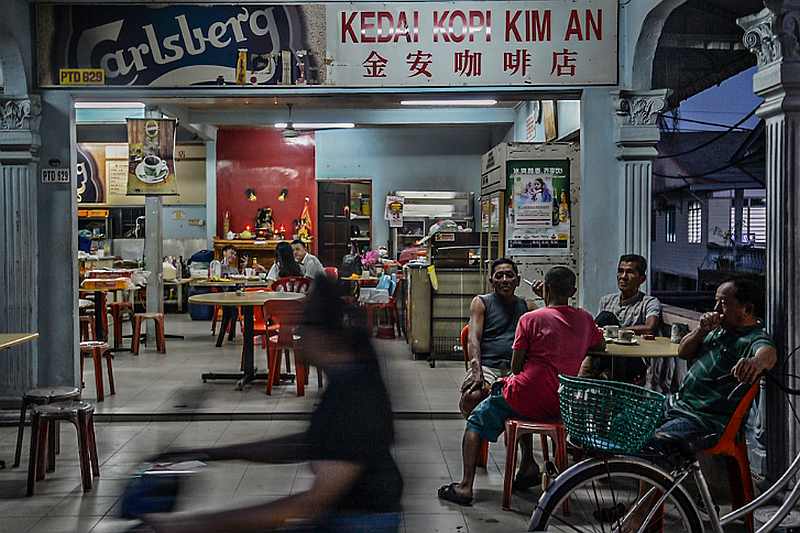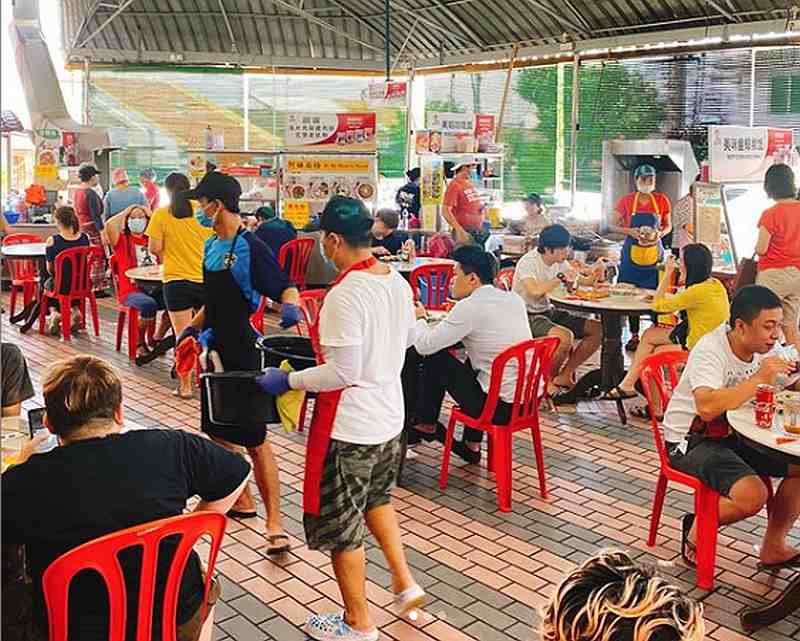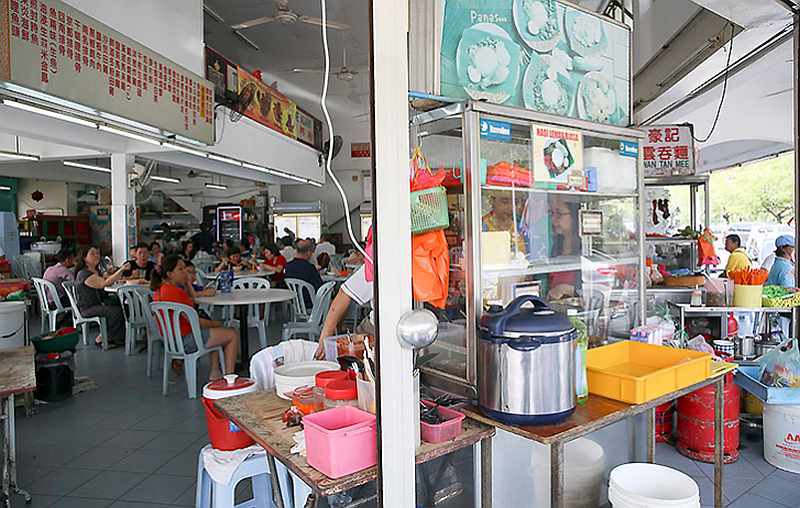Still reeling from MCO, coffee shops struggle to keep their businesses afloat amid Covid-19 fears

PETALING JAYA, July 2 — The Covid-19 pandemic struck a hard blow on many coffee shop proprietors in the country.
Since March 18, when the movement control order (MCO) was first put into effect, coffee shop proprietors have been through somewhat of a nightmare, with many being forced to “close shop” due to the economic impact of the pandemic locally.
While things are starting to pick up now, during the recovery MCO (RMCO), shop owners who made it through the lockdown now face the task of fighting to save their beloved “kopitiam.”
“We were all hit hard and we have had a lot of problems to deal with, especially earlier during the MCO. Right now, people are getting used to the new normal and the number of customers is definitely a lot higher,” said Thong Kee Cafe Seapark owner Kentson Wong in an interview with Malay Mail.

“I would say it’s slowly returning to the same crowd as we used to get before the MCO. But there are so many new challenges that we have to face.”
Wong, 28, said that while it was good that customers were beginning to “come out to eat” and this helped his sales, it also made adhering to the strict SOPs given by the government that much harder — especially when customers did not cooperate.
“The customers tend to argue with us a lot. We have a lot of new SOPs and procedures to follow, but some customers don’t understand that,” said Wong.
“We urge customers to scan their temperature, check-in and maintain social distancing. But it is hard to enforce that because probably about 10 per cent of them will ‘fight back’ and really argue with us about it, or just completely ignore us.
“Some even just scribble fake names and numbers, and if we try to get them to do it properly, they get mad at us and tell us to stop being a ‘busybody’.”
Wong added that he and his staff often paid the price for unruly customers, as he would have to pay a fine when government officials discover that customers have falsified or neglected to fill in their information.

And disruptive customers are only one half of the problem, as Wong said that bearing additional costs to keep his premises clean isn’t helping him or any other coffee shop owner in their bid to revive their business.
“The hand sanitisers, masks, gloves, fogging machine, all the proper protection and sanitisation gear — is extra cost to us and we don’t have the same number of customers to make money like we used to do,” he said.
“We don’t charge our customers any extra fees to compensate for these costs either. So we bear the full-cost to purchase the equipment, plus all of our usual costs to keep the place running.”
Simon Yap, who has owned Restoran Unlimited in SS14, Subang Jaya for the past 22 years, echoed Wong’s claims, as he said that his sales were nowhere near to what they used to be.
“We can only put about half the amount of tables as we used to, in order to stick to the SOPs and not take too many customers. So, on good days, our sales have only been like 60 to 65 per cent of what we used to get,” said Yap.
“The situation is starting to recover but I’ve been using my personal savings to keep the shop running throughout the MCO right up until now.
“If there is no second wave of Covid-19, we should be able to get back on track. But if there is one, I won’t be able to keep my shop any more.”
Yap added that he had also been trying to help out the independent hawker stalls located at his shop — some of which he has worked with for nearly a decade — but doesn’t know how long he will be able to keep it up.

“I’ve subsidised the rental for the hawker stalls. I had to support them, what else was I to do? Many of them have been with us for five, 10 years even, and they are facing a really difficult time too,” said Yap.
“The economy was already on a downturn before Covid-19 and now, there is a lot less business as people are used to staying at home more often. Yes, people do come to ‘tapau’ (takeaway) but it’s not the same and not enough to keep running.”
Yap also said that he has been forced to let go nearly half of his entire staff, comprising of local and foreign workers, since the start of the MCO.
According to Malaysia Singapore Coffee Shop Proprietor’s Association chairman Datuk Ho Su Mong, nearly 80 per cent of the 20,000 members in the association were forced to shut down during the MCO, with many closing shop for good.
Even with some coffee shops open for business now during the RMCO, Ho is concerned that the number of shops closing down will continue to increase with customers more afraid of eating out.
“People have been very sensitive about the Covid-19 virus. It has created fear in them that they will contract the virus when they go out. And it stays with them,” said Ho.
“Even when all of our members follow the SOPs — like supplying hand sanitisers and disinfecting the shops — to try and show our customers that we are doing our very best to protect them, business is not that good.
“Most of our members in Penang and Kuala Lumpur only have about 20 or 30 per cent of business which means that they aren’t making money, they are losing it.”
Ho added that he hopes that the government would help coffee shop proprietors through this difficult period.

“Our primary goal is for the government to give out loans to our members. This is one of the proposals we have made to the Economic Action Council,” said Ho.
“We need interest free loans, for at least six months to a year, to help revive the coffee shop industry. Bank Negara reports prove that the service industry, including our coffee shop industry, is a great contributor to the national GDP.
“So we hope they will help us, because, without the cashflow, our members cannot sustain themselves. The only one who can help us is the government.”
It was reported that small and medium enterprises (SMEs), which also include the coffee shop industry, contributed 38.3 per cent to Malaysia’s gross domestic product (GDP) in 2018 — which is RM521.7 billion from the country’s total GDP of RM1.36 trillion.
SMEs also constitute around 98.5 per cent or nearly one million of all business establishments in the country and provided 66.2 per cent of total employment in 2018.
Related Articles Tokyo stocks open higher on US jobs data, Covid-19 hopes As US struggles with virus, Trump heads to Rushmore for fireworks European banks team up to offer alternative to Visa, Mastercard



